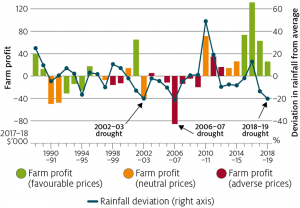Welcome back – hope you’ve been well!
For these two weeks, I’ll be blogging about environmental injustice in cities – in particular, how heat-related disasters affect communities disproportionately. I will discuss both primary and secondary findings regarding the link between socioeconomic factors and vulnerability to these disasters.
Just like pollution (discussed last week), heat-related events impact people and the environment adversely. In fact, fatalities due to extreme heat (in the last 30 years) were greater than fatalities caused by all other types of extreme weather events, according to the National Weather Service (USA). This August, the Northern Hemisphere experienced its hottest summer in history, and California is experiencing its worst wildfires yet.
However, heat events don’t impact communities equally.
First, let’s talk about wildfires. Although a natural phenomenon, wildfires have been increasing in intensity and duration in the past few years. California’s ongoing wildfires showcase this, but something less talked about is how these wildfires have affected marginalised communities more seriously than others.
In the Thomas Fire (2017), a study showed that Latinos, farmers, indigenous and lower income communities did not receive adequate emergency help from authorities. For example, evacuation notices from authorities were all sent in English, leaving the Mexican indigenous communities (who spoke Mixtec) uninformed.
As for droughts, unsurprisingly, they impact farmers most, due to reliance on agriculture for income. An Australian study (2019) highlighted this.
Figure: Rainfall patterns & Farm Profit [URL]
We can see that in the 2002-03 and 2006-07 droughts, farm profits hit neutral and adverse negative figures. Apart from income losses, however, droughts also cause (mental and physical) health problems, higher wildfire vulnerability and increased deaths for these communities. With a lack of governmental support, these impacts are likely to be exacerbated.
Now – let’s discuss heatwaves. Heatwaves are, by definition, periods of two or more days characterised by exceptionally high temperatures.
In major American cities like New York, historical “redlining” – disallowing communities of colour to reside in predominantly white districts – have caused them to be more exposed to extreme heat. A study showed that, in 94% of 108 American urban areas, communities of colour are more likely to live in urban heat islands, where extreme heat events would affect them more adversely.
Another major factor that affects vulnerability to heatwaves is level of access to public green spaces. This is because green spaces provide respite – temperatures are much cooler than average temperatures. In America, access to parks or open spaces varies between communities of different socioeconomic backgrounds.
On average, the parks that communities of colour have access to are half as large as those that white communities have access to. When considering economic status, low-income communities have access to parks that are a quarter the size of parks that high-income communities access, according to an American study.
Overall, we have seen that irrespective of the heat disaster, marginalised communities suffer disproportionately. Would this be the case in Singapore? See you next week, where I’ll present my findings on this.
– Hope 🙂

Hi Hope,
Was glad that you’ve touched on the current wildfires in California, as it has become a hot issue in the leadup to November’s presidential election. Presidential candidate Joe Biden has effectively used it as part of his presidential campaign, which by logic should appeal to communties affected by the wildfires. However, American politics is notorious for gerrymandering, whereby the re-drawing of electoral maps dilute the voting powers of the marginalised. (E.g Black, Hispanic, Latino communities) Hence, do you think that the voices of those affected by the wildfires will ever be heard? Or are they doomed to bear the brunt of future environmental catastrophes while their white counterparts are less affected?
Cheers,
Yu Xun
Hi Yu Xun,
Thank you for your thought-provoking comments. 🙂 I do think that the lack of representation in positions of power for America’s marginalised communities will continue, and this will definitely cause their needs to be overlooked. Furthermore, even if white American politicians do consider their needs, it is highly unlikely that they will fully understand the severity of the problems these marginalised communities face, and solutions may continue to be inadequate. Thus, although I am unable to assume this, I do think those who have been impacted disproportionately by the wildfires will continue to experience this injustice.
I do hope, however, that things can get better for them. Although they may still experience injustice, with support from non-profit organisations such as Direct Relief that are helping to provide resources to first responders and healthcare workers during the California wildfires (see this link), perhaps some of the impacts can be reduced.
– Hope 🙂